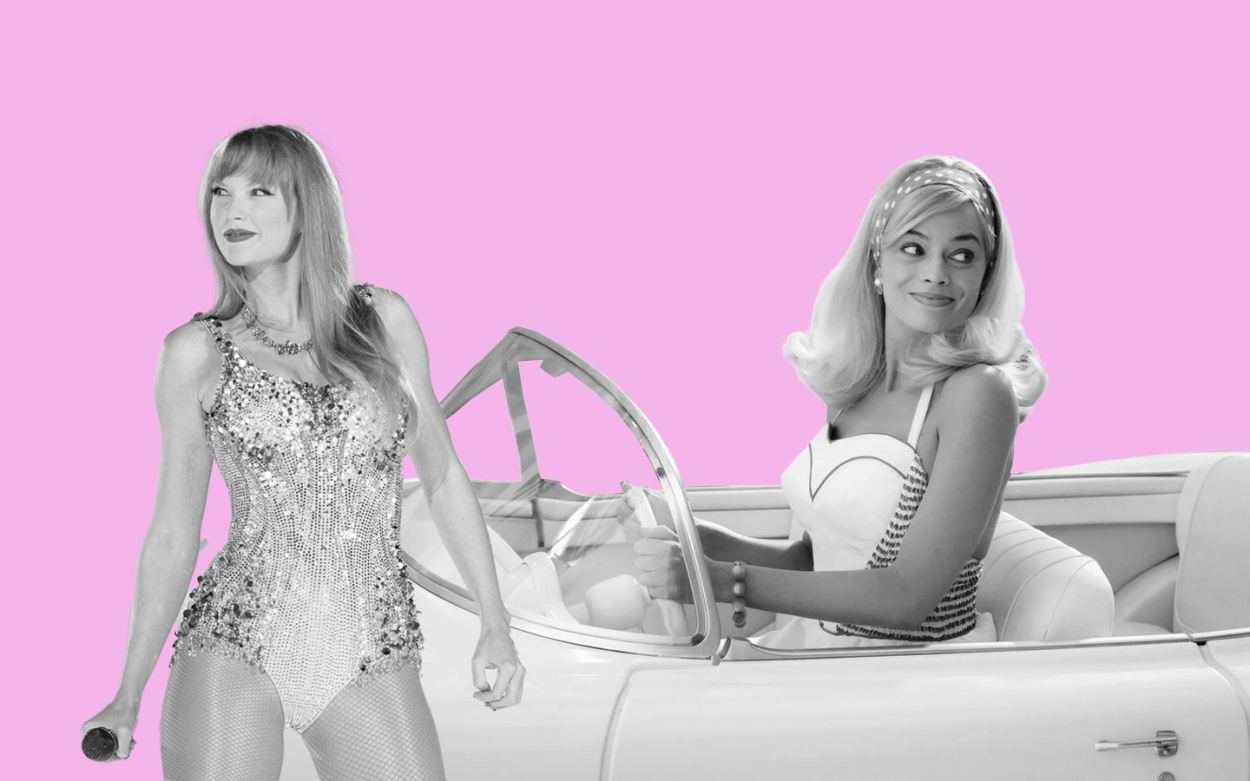Theodor Adorno and Max Horkheimer are lucky to not have witnessed the Barbie movie or Taylor Swift’s Eras tour –they would have absolutely hated them. After all, these Frankfurt School philosophers were the original haters: by introducing the Culture Industry Theory, they dismissed all forms of mass entertainment as tools for control of the population. To them, Barbie is just an hour-and-45-minute-long advertisement for Mattel, sprinkled with product placements for Chevrolet, Chanel, and TAG Heuer. To them, singers like Taylor Swift could either be true artists or just pawns in the industry’s capitalist machine, but not both. As a pop culture lover, I pondered this idea for a bit too long – is everything I enjoy devoid of true artistry?
The Culture Industry theory argues that, because art forms have been mass-produced and commodified, they have become tools of mass manipulation that turn us into passive consumers. Entertainment dulls our critical impulses and brainwashes us into accepting the status quo.
For instance, when the Barbie film came out, it quickly changed many people’s opinions on the iconic doll. The movie addressed some of the criticisms she had received over the decades such as creating unrealistic beauty standards, lowering girl’s self-esteem, and “glorifying rampant consumerism”. By being “self-aware”, the blockbuster debunked these accusations and instead argued that Barbie is a champion of female empowerment who teaches girls that they can be anything they want to be – a doctor, astronaut, or Nobel Prize winner. Audiences swooned at this meticulously crafted Mattel PR campaign (which made 1.44 billion dollars at the box office) and all the problems Barbie ever caused were swiftly swept under the rug—at least for some.
Nonetheless, the passive consumption that Adorno described is not present in fandoms like the Swifties where the fans constantly engage in meaning-making activities. If you go on social media, you will most likely find thousands of videos and comments discussing the deeper meaning of lyrics, easter eggs in music videos, inside jokes, lore, and rituals (of course, Adorno and Horkheimer would never know about this because they would be the type to brag about not having downloaded TikTok).
While thinkers of the Frankfurt School are right about art being eroded by the urge to sell – think of Marvel movies becoming increasingly mediocre –, their assumption that this is true for all cultural products is faulty. Are movies or songs that move you, that leave you pondering the meaning of life, not “proper” art? Yes, Barbie has a capitalistic intent and projects certain ideas, but it does not lack artistic elements. Audiences can be aware of the narrative the script is trying to push and, simultaneously, cry over a montage of women of all ages and walks of life that evokes the nostalgia of girlhood and encapsulates the feminine experience.
We talk about this pessimistic theory because it is somewhat true. Consumption is a big part of fandom, and part of the joy of it is getting lost in a good song or movie. But there is also a lot of reflection and emotional power in pop culture, which are elements inherent to “true” art. The audience’s capacity for thinking critically about what they are consuming should not be underestimated. Indeed, pop culture and its effect on us is much more complex than it appears.


I also went to see Barbie because I loved the Barbie cartoons when I was young, but I was also very disappointed to see the live-action version of the film. The film talks about feminism, but it is at a very early stage and has a limited view, a very shallow and superficial view. But it is put on the pink feminist marketing package, which is more adapted to the contemporary environment by the advanced consumerism, and then sold to the specific “new era women” products. Such films are of no use to society as a whole and can only provide the simplest everyday entertainment to show everyone “pink”.
I remember going to the cinema to see the Barbie movie a few months ago and though I did mostly have fun with it I couldn’t help but think a lot of the points it presented were only very surface level and didn’t dive too deep into many of the issues regarding both the history of the dolls and Mattel itself- though it does present itself as a more critical film. Again I do agree it was enjoyable with good moments that many clearly related to however it was also clearly (at least partially) a marketing strategy.
As someone who is deep into fandom I can agree many fandoms do rely on consumption- some more than others- to function. Even the Barbie movie can relate to this as it is a film about consumer products.
Your perspective on the culture industry theory and its flaws of being too pessimistic is very entertaining to read from start to finish! I was especially intrigued that you chose Barbie as an example to discuss about the culture industry. I agree with you that even if Adorno and Horkheimer view the films as a 2 hour long commercial, we shouldn’t ignore the film’s artistic elements. Also, I really liked your closing argument that we shouldn’t underestimate the audience’s ability to critically think about the content they are consuming.
I really enjoyed this blog Agostina! The TikTok video of a Taylor Swift fan analysing the lyrics to one of her songs is such a good example that we do indeed try to find a deeper meaning in what we watch and/or listen, and I love how you mentioned that “part of the joy is getting lost in a good song or movie” – that was such a great quote to use in concluding your blog. I fully agree with you that there is some truth to this pessimistic theory but that it is also important to not generalize this among every product and consumer.